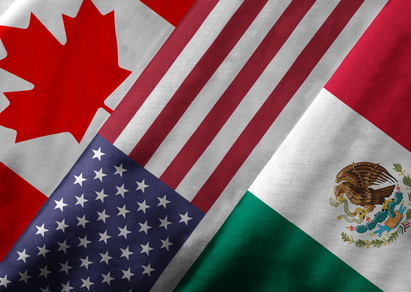NAFTA: Compromise is needed on both sides

Montreal, January 22, 2018 – The United States and Canada have to make concessions in order to save NAFTA, whose days are numbered if the parties at the negotiating table persist in wanting to protect their industries to the detriment of consumers and free trade.
“Both countries have to compromise, not just the Americans. Everyone has to give a little,” argues Alexandre Moreau, Public Policy Analyst at the MEI.
While the sixth round of negotiations has begun in Montreal, Mr. Moreau points out that NAFTA has benefited Canada, the United States, and Mexico. “It’s a win-win-win agreement. Since NAFTA came into effect in 1994, productivity has increased across North America, and trade has exploded. Everyone benefits from this,” he says.
The end of NAFTA could have serious economic consequences since almost all (96%) Canadian automobile industry exports, for instance, are destined for the American market. The 125,400 direct jobs connected to this industry are therefore highly dependent on our economic partner. Customs duties are also hard on the aeronautics sector and the softwood lumber sector, where the American market represents nearly 75% of Canadian exports.
In order to save the agreement, each country has to make some concessions, and abandon mercantilist thinking. Canada, for example, could liberalize its agricultural market—all while compensating affected farmers—and ask for full access to other markets in return.
“We cannot on the one hand defend the maintenance of tariffs, which can go as high as 300% for products under supply management, while on the other hand accusing the American government of being protectionist,” declares Alexandre Moreau. “If Canada wanted to show some leadership, it should plead for the abolition of all remaining trade barriers, in both countries.”
In the specific context of the renegotiation of NAFTA, the abolition of a major irritant like supply management would put Canada in a better position to counter American protectionist tendencies in the automotive and softwood lumber sectors, both key sectors for the country. “This would be a win-win for Canadians, because the system of quotas and tariffs imposed on dairy products, eggs, and poultry blocks the entry of foreign products and costs Canadian consumers over $3 billion a year, according to the OECD,” explains Alexandre Moreau.
“Canada has always been a leader when it comes to free trade. We are a nation of exporters who have continually conquered new markets. It’s in our DNA,” adds Michel Kelly-Gagnon, President and CEO of the MEI. “NAFTA is a success we can be proud of, but its survival is threatened. Canada must show leadership in these negotiations, by promoting the opening up of markets on both sides of the border.”
* * *
The Montreal Economic Institute is an independent, non-partisan, not-for-profit research and educational organization. Through its studies and its conferences, the MEI stimulates debate on public policies in Quebec and across Canada by proposing wealth-creating reforms based on market mechanisms.
– 30 –
Interview requests: Pascale Déry, Vice President, Communications and Development, MEI / Tel.: 514-273-0969 ext. 2233 / Cell.: 514-502-6757 / Email: pdery@iedm.org

